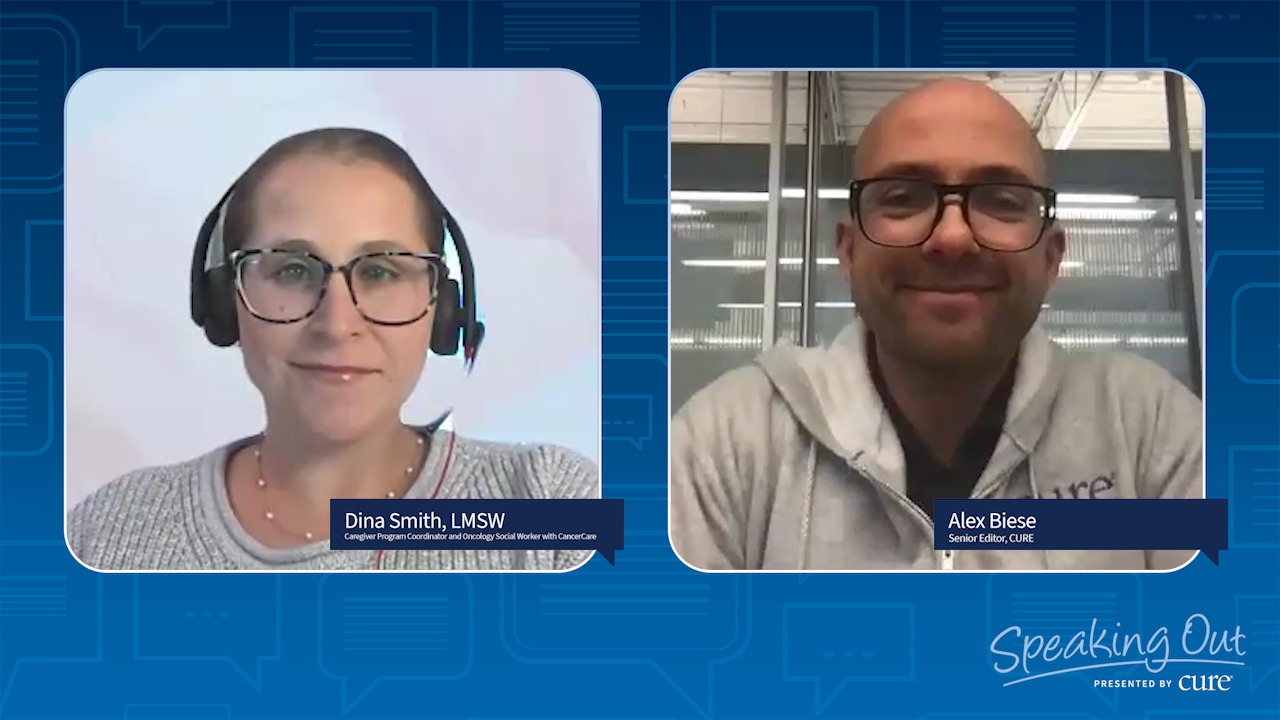- About Us
- Advertise / Support
- Editorial Board
- Contact Us
- CancerNetwork.com
- TargetedOnc.com
- OncLive.com
- OncNursingNews.com
- Terms & Conditions
- Privacy
- Do Not Sell My Information
- Washington My Health My Data
© 2025 MJH Life Sciences™ and CURE - Oncology & Cancer News for Patients & Caregivers. All rights reserved.
Resources Available for Cancer Caregivers

A nationally-published, award-winning journalist, Alex Biese joined the CURE team as an assistant managing editor in April 2023. Prior to that, Alex's work was published in outlets including the Chicago Sun-Times, MTV.com, USA TODAY and the Press of Atlantic City. Alex is a member of NLGJA: The Association of LGBTQ+ Journalists, and also performs at the Jersey Shore with the acoustic jam band Somewhat Relative.
From counseling services to wellness workshops, there is a wide array of resources potentially available to caregivers, as an expert explained.
For patients with cancer and the loved ones serving as their caregivers, help is out there.
Take the New York City-based non-profit organization CancerCare, which offers free services as well as limited financial and co-pay assistance programs.
“We are run by social workers, so the people who are providing the services are social workers, and because of that, we can provide psychosocial-based support,” explained Dina Smith, caregiver program coordinator and oncology social worker with CancerCare, in an interview as part of the “Speaking Out” video series.
Other programs offered by CancerCare include free one-on-one and group counseling services for New York and New Jersey residents as well as typing-based online support groups for people living outside of those states, educational and wellness workshops, a wig and prosthesis bra boutique program for New York, New Jersey and Connecticut residents and resource navigation or case management services, Smith said.
Attitudes towards caregivers’ needs in particular have evolved over time, as Smith explained.
“I'm happy to report that I am hearing a lot more of caregivers immediately receiving support and services from their loved one’s medical team,” Smith said. “And you know, it still happens today, where the loved one will be diagnosed and they will be given so many resources, so much information to help them get through this diagnosis, but not a lot or anything [is offered] for caregivers. But I'm actually, more so now, hearing these days that psychosocial support, help with navigating resources, answering questions, a lot of this is being offered to the caregiver as well.”
However, caregivers may need to ask for help themselves, as Smith daid.
“For all of you caregivers out there who may be listening to this and maybe thinking, ‘Well, my loved one’s doctor didn't give me any of that’ to that, I say, advocate for yourself,” Smith said. “Ask, if you are interested in getting support. Ask your loved one’s oncologist, ask their nurse practitioner or their nurse. Inquire about if there's a social worker available to speak to, because oftentimes, if the social worker can't provide psychosocial support, they can get you connected to someone who does.”
For more news on cancer updates, research and education, don’t forget to subscribe to CURE®’s newsletters here.
Related Content:




